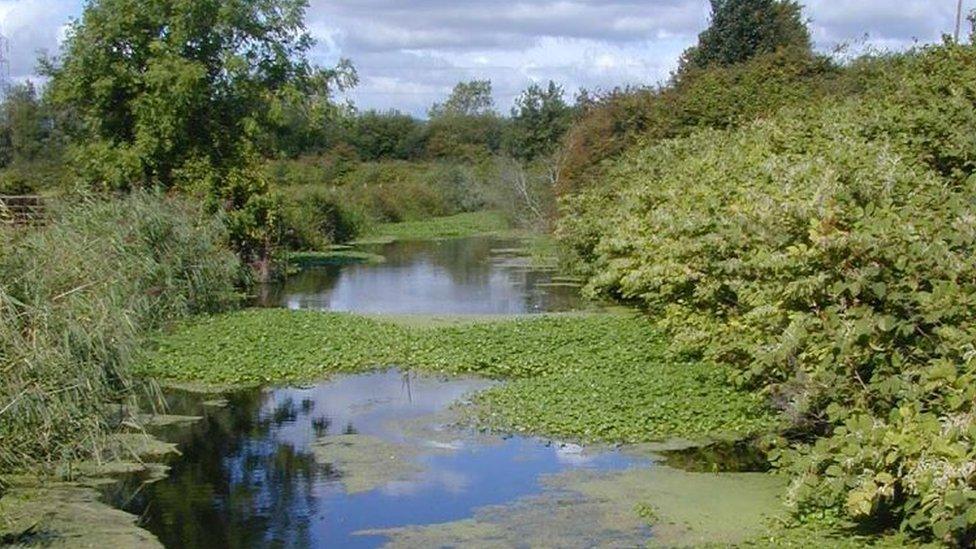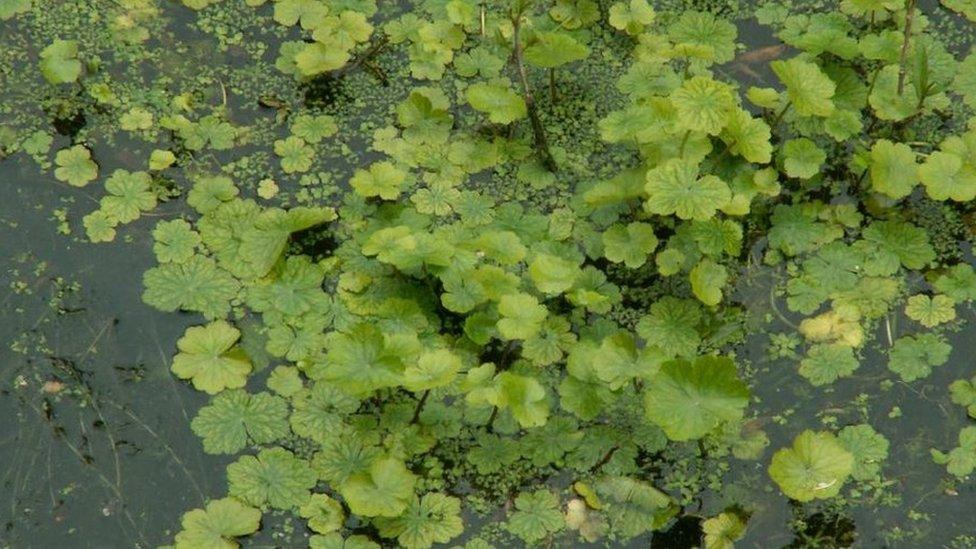Triffid-like plant 'taking over Thames', says professor
- Published

An "invasive alien plant with Triffid-like growth" is about to take over parts of the Thames, a professor says.
The Floating Pennywort, which can grow up to 20cm a day, is in the river downstream of Reading.
River management specialist Prof Alastair Driver said: "If the Environment Agency don't eradicate the Floating Pennywort this autumn, then it will be too late."
The Environment Agency (EA) has been approached for comment.
The plant, Latin name Hydrocotyle ranunculoides, was first naturalised in 1990 after being thrown away by people with garden ponds.
The free-floating or rooted species lies across the channel of the river, and is larger than the native Marsh Pennywort.

The plant is characterised by its shiny, kidney-shaped leaves with crinkled edges
He added that the plant can "smother" waterways, impacting wildlife and the risk of flooding.
If allowed to grow unimpeded, Prof Driver said it can out-compete local species by blocking out light and obstructing air breathing insects from reaching the water surface.
"Once the winter rains have come, fragments of the Pennywort will have spread throughout the river downstream and it will cost potentially tens of thousands of public money every year just to keep on top of it in the Thames alone - possibly forever," he added.
The EA has previously replied to a tweet, external about the Floating Pennywort in Reading. The tweet said: "We appreciate the importance of this information and are looking into it directly."
The EA has been approached for a full comment.